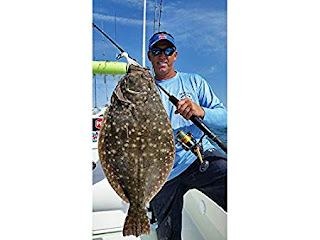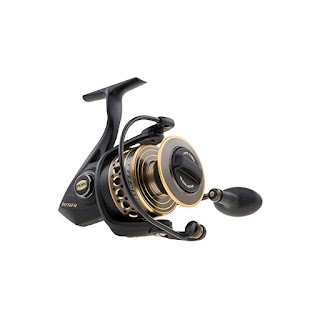Great reel, except for the anti-reverse switch.
I took the reel apart as soon as I received it. Here is what I found. The reel is made entirely of non-corrosive metal,
very little plastic in this reel. It has a single locomotive gear and is generally well designed and manufactured.
The reel did not have the washers on the three side plate screws. This made the reel more difficult to handle than it should be. By removing the screws, the reel came free. The reel is now very easy to turn and smooth.
I placed an order for the washers. I might turn it over, but that's not a big deal.
Penn puts its blue grease all over this reel. This is usually a good thing. I did, however, remove the grease from the drive shaft and line bushing and replace it with Penn reel oil. The reel is now easier to turn than it was when it came out of the box.
Non-sealed saltwater reels should be easy to take apart and put back together, because if you dive one, that's what you'll do.
That's largely the case with the 2500 Battle. There are no hidden side plate screws under the rotor.
So you can remove the side plate for maintenance and inspection without having to disassemble the rotor.
The screws won't be damaged by a standard screwdriver and are easy to remove.
However, Penn has deviated from its easy-to-maintain design philosophy for the roller bearing and anti-reverse switch.
It's as if they were designed as an afterthought. The roller bearing (anti-reverse) is a 10-piece assembly that comes apart in your hand when you remove it. Penn added an anti-reverse switch to this little model. To activate the A/R,
it relies on a tiny spring that looks like it belongs on a watch. Penn really screwed up the design of the roller bearing and the anti-reverse switch. They are far too difficult to reassemble and if the spring corrodes and breaks, you have no anti-reverse. The 3000 and above models do not have a non-return switch and appear to have a one piece roller bearing.
HOW TO FEATHER A PIN REEL
The reel has a flat plate that prevents the rotor nut from loosening. The plate is held in place by a screw.
Penn has placed two screw holes in the rotor to screw the plate into. You choose which one you need.
This extra hole is not covered and is an entry point for salt water under the rotor.
Come on Penn, what were you thinking?
The reel has a screw-on handle. I prefer this one to a pin handle that you insert into the reel and screw on.
that you insert into the reel and screw on with a retaining cap on the other side of the body. The reel is very solid
when you turn the handle, with very little play.
The Battle has a bushing for the reel line, no bearing here. I prefer this design as it is more reliable and easier to maintain. This is one area where they save money without diminishing performance. Same with the reel handle, no bearing here, again one less bearing to replace in case of saltwater intrusion. Personally, I'm thinking roller coaster and a roller coaster handle.
I really like it. It is all metal and has less than $100 shipped. However, if you are able to repair it yourself, you can go to the top of the page. and non-return switch. I'm going to keep this reel for my kid's rod, but I'll buy 3000 sizes for my other inshore rods.
I removed a star for the multi-piece roller bearing and a non-return switch with a small spring.
I use KastKing on all my fishing gear here in Southern California. With a short top-shot, this braid has gone through many amber jacks fighting kelp from my kayak. I used this braid when it was simply called Poseidon and not KastKing, and I will continue to use it as long as I fish. For quality at the price, it can't be beat. I started using this line on my surf reels but now all my reels have it. I use 20lb on my sabiki, 50lb for my Sea-line SHA X-40 and 65lb on my TLD 15. The best line I have ever used, without a doubt.









